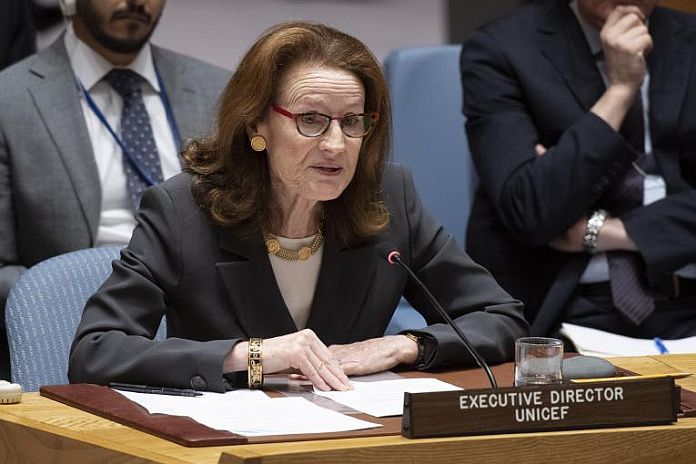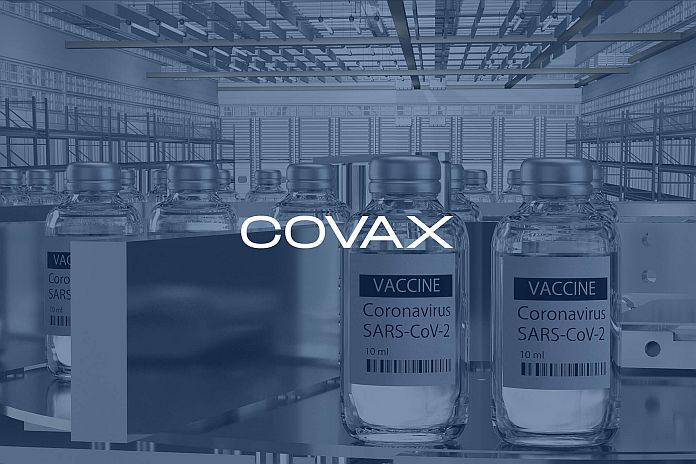By Caribbean News Global ![]()
GENEVA/OSLO/USA – Following Latin America – Caribbean notification of first COVID-19 vaccine allocations through COVAX – and ongoing preparation by participating Member States for inoculation, COVAX has also published an interim distribution forecast; meanwhile, UNICEF executive director Henrietta Fore delivered a briefing on COVAX published interim distribution forecast.
The COVAX statement issued February 3, 2021 reads:
“The Coalition for Epidemic Preparedness Innovations (CEPI), Gavi, the Vaccine Alliance and the World Health Organisation, as co-leads of the COVAX initiative for equitable global access to COVID-19 vaccines, alongside key delivery partner UNICEF, are pleased to publish COVAX’s first interim distribution forecast.
Building on the publication of the 2021 COVAX global and regional supply forecast, the interim distribution forecast provides information on early projected availability of doses of the Pfizer/BioNTech vaccine in Q1 2021 and the AstraZeneca/Oxford vaccine candidate in first half 2021 to COVAX Facility participants. This announcement comes less than two weeks after the announcement of the signed advance purchase agreement with Pfizer/BioNTech and a little more than a month after the first COVID-19 vaccine received WHO EU approval.
The purpose of sharing the interim distribution with countries, even in today’s highly dynamic global supply environment, is to provide governments and health systems with the information they need to plan for their national vaccination programmes. Final allocations will be published in due course.
“The interim distribution forecast outlines projected delivery of vaccine doses to all Facility participants, with the exception of participants who have either exercised their rights to opt-out, have not submitted vaccine requests, or have not yet been allocated doses. The interim distribution forecast is available here.”

“UNICEF is proud to be part of today’s release of an indicative distribution plan by the COVAX facility.
“This release will help countries continue their preparations for vaccine distribution by providing them with details of the type of vaccine each country will receive in the first and second quarters.
“This is, of course, just an initial tranche of COVAX vaccines. More will follow. We will continue to work on the supply agreements to meet the needs of the COVAX vaccine requirements for the first half of 2021.
“And we have some good news in that regard. Today we are pleased to announce the conclusion of a long-term supply agreement with the Serum Institute of India for covid-19 vaccines, to access two vaccine products through technology transfer from ASTRAZENECA and NOVAVAX. UNICEF, along with our procurement partners including PAHO, will have access to up to 1.1 billion doses of vaccines for around 100 countries, for approximately $3 a dose for the low- and lower middle-income countries. This is great value for COVAX donors and a strong demonstration of one of the fundamental principles of COVAX – that by pooling our resources we can negotiate in bulk for the best possible deals.
“Sharing pricing information is also a reflection to UNICEF’s commitment to transparency, which we have been demonstrating for the past ten years by publishing all negotiated prices for a range of commodities. As these supply agreements are concluded, we will continue to make public relevant details of the agreements, subject to the consent of the suppliers. Likewise, we look forward to working with SII to distribute these vaccines to countries, subject to the approval of the vaccine by WHO.
“With these indicative allocations, governments and public health experts can now initiate the steps needed for a successful initial roll-out of COVID vaccines to frontline healthcare workers—the first part of the largest vaccine procurement and supply operation ever mounted.
“For our part, UNICEF stands ready to fully support the roll-out of the first batch of COVID-19 vaccines as the drive against this deadly virus shifts into a higher gear. Our country offices will support governments as they move forward with this first wave to ensure that they are ready to receive the vaccines that require ultra cold chain. This includes ensuring that health workers are fully trained in how to store and handle the vaccines. We must get this right. Many of these doses will go to health workers in urban areas, who are at the highest risk of exposure to COVID-19 infections.
“This work has already begun. For example, Bosnia and Herzegovina is one of the countries that will be an early recipient of the Pfizer vaccine, which requires ultra cold chain storage. UNICEF is providing Bosnia and Herzegovina with 8 refrigerators that will be able to store vaccines in temperatures as low as -80° Celsius. The first two refrigerators recently arrived and will be distributed to locations agreed with the Ministry of Civil Affairs. The rest will follow as soon as possible.
“Over recent months, UNICEF has also been preparing for this moment by stockpiling half a billion syringes, along with safety boxes to dispose them. We have worked closely with airlines and other partners to make sure that all the necessary logistical and planning arrangements are in place. And we are supporting governments and partners in developing national plans to assess their logistics. This includes helping to plan, coordinate, budget, and prepare their health facilities and cold chain ahead of vaccine delivery. Along with WHO and Gavi, we are also advising countries to help improve their vaccine roll-out plans, every step of the way.
“Today’s release of these plans represents an important next step. For the countries receiving initial tranches of vaccines, preparatory work can now pivot to implementation and delivery.
“For countries which have already initiated vaccination drives, and those yet to begin, this information is a hopeful marker on the winding path out of a pandemic that will not be truly over, until it is over for us all.”





